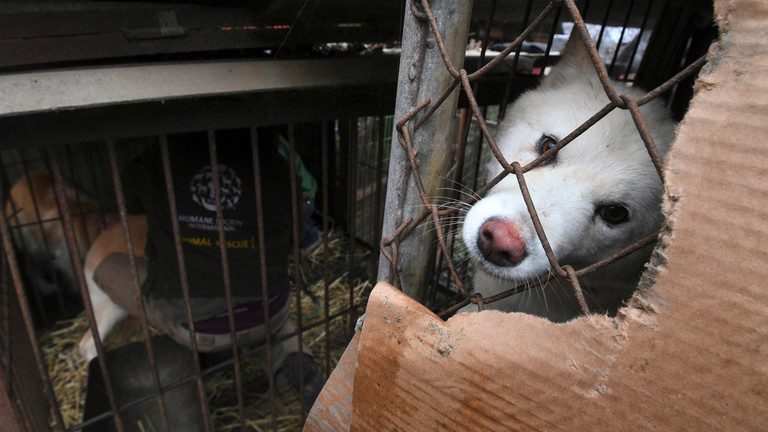Headlines
Consumption of dogmeat banned in South Korea

South Korea’s parliament has made a significant decision by voting to prohibit the sale and consumption of dog meat, a practice that was once prevalent in the country. President Yoon Suk Yeol and first lady Kim Keon Hee, who are proud owners of six dogs and eight cats, have been strong advocates for this ban since its proposal in September.
With 208 out of 300 lawmakers voting in favor and only two abstaining, this vote reflects a momentous victory for animal rights. JungAh Chae, the executive director of Humane Society International Korea, expressed her astonishment at witnessing the end of the cruel dog meat industry in South Korea, emphasizing the dedication and determination of the animal protection movement.
While acknowledging the unfortunate reality that this change has come too late for countless dogs, Chae also expressed her joy that South Korea can now move forward towards a future that embraces a dog-friendly environment.
The new law, effective from 2027, prohibits the raising, slaughter, and sale of dog meat for human consumption. Violators will face penalties such as fines of up to 30 million won ($22,800) or imprisonment for up to three years, while there is no penalty for the consumption of dog meat.
According to a recent survey conducted by the Seoul-based think-tank Animal Welfare Awareness, Research and Education, it was found that 94% of respondents had not consumed dog meat in the past year, and 93% expressed no intention of doing so in the future. This signifies a significant shift in Korean society, as the perception of dogs has evolved from being seen as a source of food to being regarded as beloved family pets.
The ban on dog meat is expected to impact around 3,000 restaurants and approximately 3,500 farms, which collectively raise about 1.5 million dogs. However, figures from April 2022 provided by the Agriculture Ministry indicate that there are currently 1,600 restaurants, 1,100 farms, and 570,000 dogs involved in the dog meat industry.
The ban has faced opposition from dog farmers, who have threatened to release two million canines if the government proceeds with the prohibition. They argue that it infringes upon their right to consume dog meat. In response, the government has offered a grace period and compensation to assist farmers in transitioning to other careers.
Animal rights activists, however, have criticized this approach, claiming that the farmers may demand unreasonably high sums. The farmers themselves have emphasized that their main customers are individuals over the age of 60, who are resistant to change and starting new businesses.
